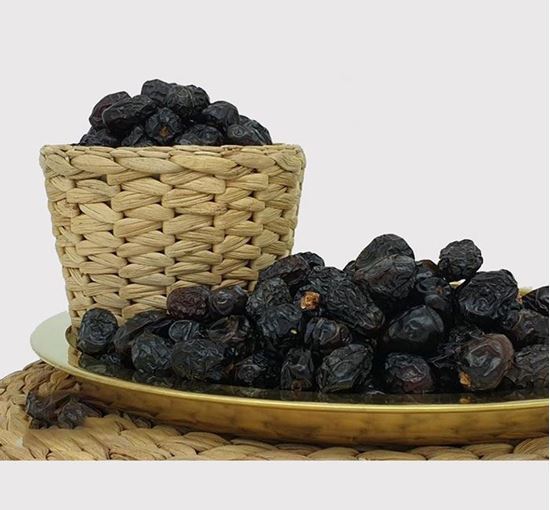Unveiling the Secrets of Kurma Nabi: Ensuring Quality in Date Exportation

Introduction
Dates, a versatile and nutritious fruit, hold cultural and religious significance in various parts of the world. One particular term associated with dates is “Kurma Nabi,” which holds special importance in Islamic tradition. In this blog post, we will delve into the meaning of Kurma Nabi and explore the measures taken by date exporters to ensure the quality and freshness of their products during transportation. Join us on this journey as we uncover the secrets behind Kurma Nabi and the meticulous processes involved in delivering top-notch dates to consumers worldwide.
Kurma Nabi: The Prophet’s Dates
Meaning of Kurma Nabi
The term “Kurma Nabi” translates to “Prophet’s dates” in English. In Islamic tradition, it refers to the dates that were beloved and consumed by the Prophet Muhammad (peace be upon him). These dates hold a special significance and are highly regarded by Muslims around the world. The term “Kurma Nabi” emphasizes the connection between these dates and the Prophet Muhammad, making them more sought after by followers of Islam.
Cultural and Religious Significance
This date variety carries immense cultural and religious significance for Muslims. It is believed that the Prophet Muhammad (peace be upon him) regularly consumed dates and highly recommended their consumption for their numerous health benefits. As a result, dates, especially those associated with the Prophet, hold a place of honor and are considered blessed. Many Muslims incorporate these dates in their daily diet and also consume them during religious occasions and observances.
Ensuring Quality and Freshness in Date Exportation
Harvesting at the Optimal Time
To ensure the highest quality and freshness of dates during transportation, exporters pay close attention to the timing of harvest. Dates are typically harvested when they reach their optimal ripeness. This ensures that the fruits have developed their characteristic flavor, texture, and sweetness. Harvesting at the right time also helps in preventing overripening or under ripening, which can affect the quality and shelf life of the dates.
Sorting and Grading
After harvesting, dates undergo a meticulous sorting and grading process. This step involves separating the dates based on their size, color, and quality. Dates that are damaged, discolored, or have any defects are removed to maintain the overall quality of the batch. The sorting and grading process ensure that only the best dates make it to the export market, meeting the expectations of consumers.
Packaging and Storage
Proper packaging and storage are crucial to preserve the quality and freshness of dates during transportation. Date exporters use specialized packaging materials that provide protection against moisture, temperature fluctuations, and physical damage. Additionally, storage facilities are equipped with controlled environments, such as temperature and humidity control, to maintain the freshness and extend the shelf life of the dates.
Cold Chain Logistics
To ensure that dates remain fresh during transportation, exporters employ cold chain logistics. This involves maintaining a controlled temperature throughout the shipping process, from the packing facility to the final destination. Refrigerated trucks, containers, and warehouses are used to keep the dates at the optimal temperature, preventing spoilage and preserving their taste, texture, and nutritional value.
Quality Control and Certifications
Date exporters implement rigorous quality control measures to ensure that their products meet international standards. They conduct regular inspections, quality checks, and laboratory testing to verify the freshness, taste, and safety of the dates. Additionally, exporters may obtain certifications such as ISO, HACCP, or organic certifications, which demonstrate their commitment to maintaining high-quality standards and meeting the requirements of discerning consumers.
Conclusion
Kurma Nabi holds a special place in Islamic tradition, representing the dates beloved and consumed by the Prophet Muhammad (peace be upon him). Date exporters go to great lengths to ensure the quality and freshness of their products during transportation. From harvesting at the optimal time to meticulous sorting, grading, packaging, and storage, exporters prioritize maintaining the integrity of the dates. Cold chain logistics and quality control measures further contribute to delivering top-notch dates to consumers worldwide. By understanding the significance of this date variety and the efforts involved in ensuring quality in date exportation, we gain a deeper appreciation for the cultural and religious importance of dates and the meticulous processes behind their journey from farm to market.
Key Highlights:
– “Kurma Nabi” refers to the dates consumed by the Prophet Muhammad (peace be upon him) and holds special cultural and religious significance for Muslims.
– Date exporters ensure quality and freshness during transportation through careful harvesting, sorting, grading, packaging, and storage processes.
– Cold chain logistics, including temperature-controlled transportation, help preserve the taste, texture, and nutritional value of dates during shipping.
– Quality control measures and certifications demonstrate the commitment of exporters to maintaining high-quality standards.
– Kurma Nabi and the efforts to ensure quality in date exportation highlight the cultural and religious importance of dates and the dedication of the industry to delivering exceptional products to consumers worldwide.
By understanding the concept of this Kurma and the measures taken to ensure quality and freshness in date exportation, we gain insights into the cultural significance of dates and the meticulous processes involved in delivering the best products to consumers. Whether you enjoy these dates for its historical and religious significance or simply appreciate the delicious taste and health benefits of dates, the journey from harvest to your plate is marked by careful attention to detail and a commitment to excellence.